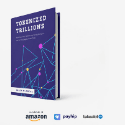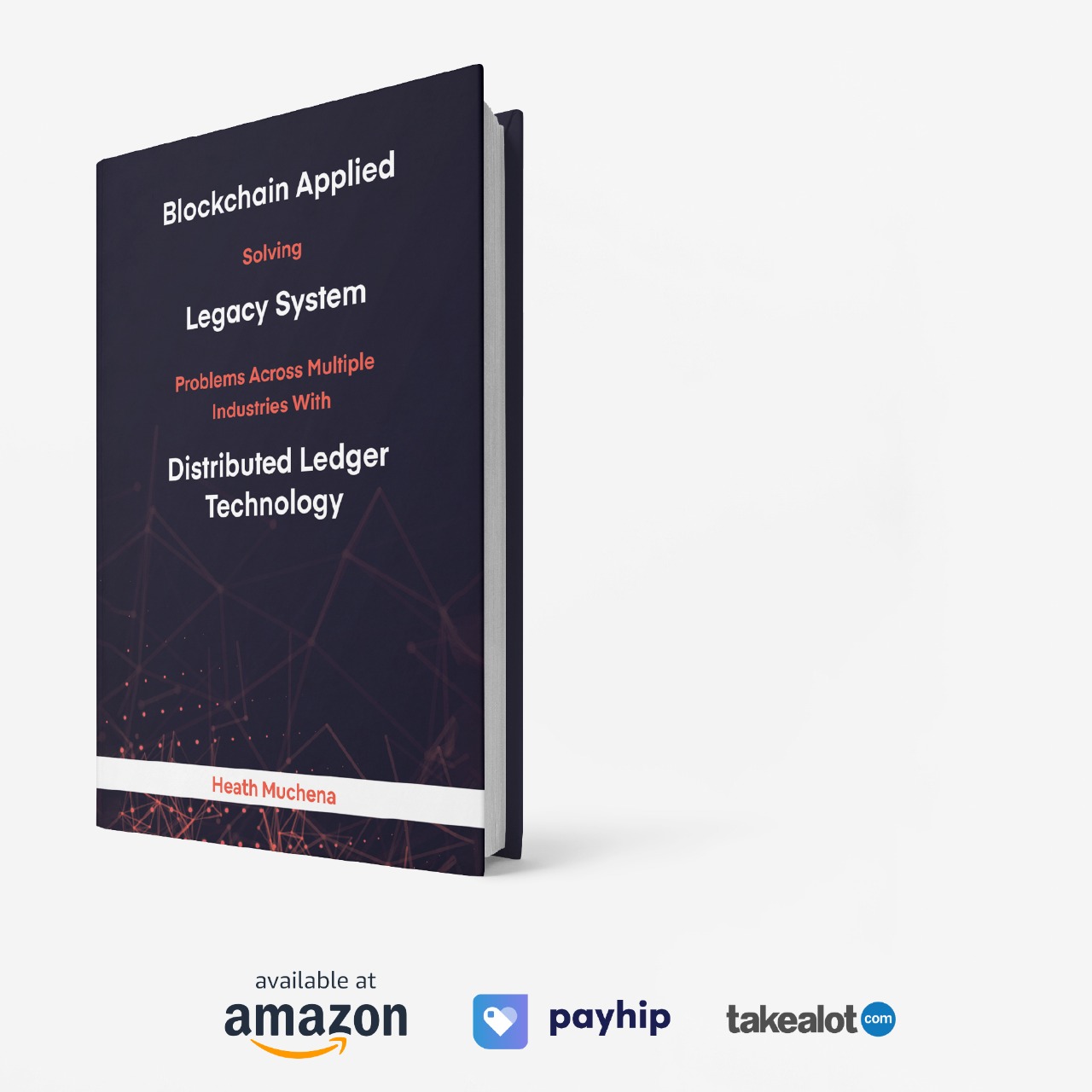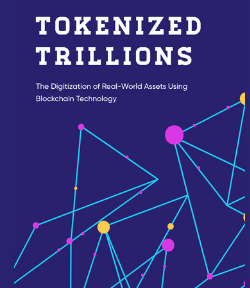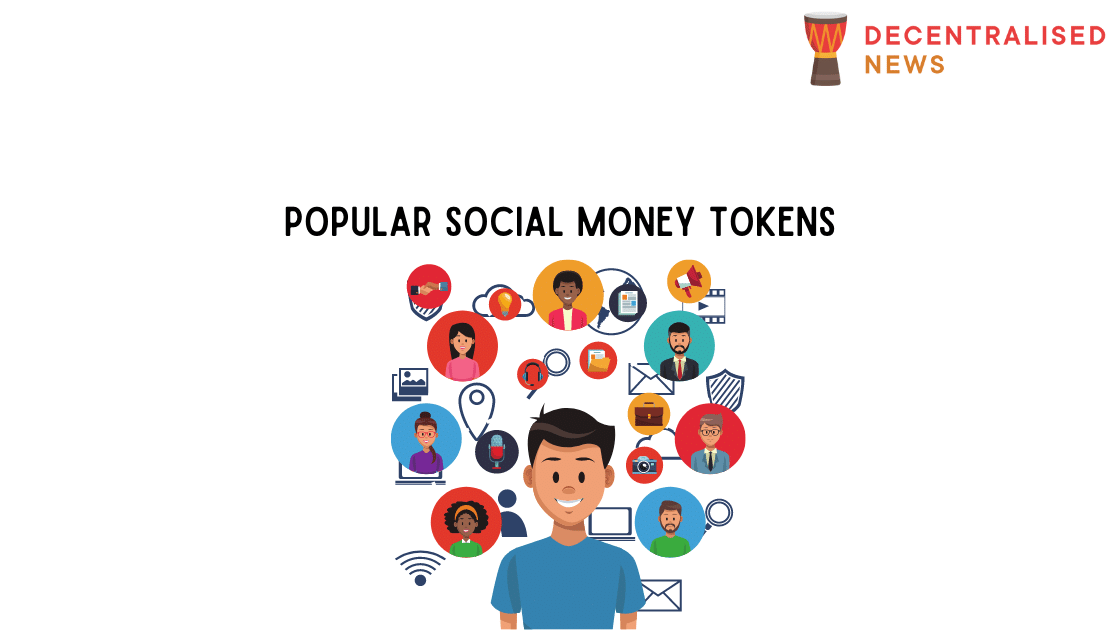
Social tokens can be utilised by content creators to build and reward their fan communities and even access crowdfunding mechanisms that can help them launch their works or secure sustainable careers as creators. An example of a social token could be that issued by an artist who sells or gives away the tokens to loyal fans who in turn would be granted access to exclusive content, tickets or merchandise.
Social Token Platform Case Study – Roll
Roll provides infrastructure that allows users to create personalised branded social money. Each issuer has their own unique network, which has its own unique social value. Users are able to own, control and monetize the value of their social interactions. Roll enables people to issue ERC-20 tokens on the Ethereum blockchain and effectively distribute fancoins.
Roll provides tools to distribute fancoins to stakeholders and new fans after issuance. It also provides pathways to use these fancoins across the web for unique experiences and opportunities. The monetary supply of fancoins is defined in the Roll smart contracts which incentivizes both issuers and fans to hold the value of their social interactions in fancoins for the long term. As an issuer, you can pretty much determine how your fancoin is distributed and used by followers, fans, and the network. Essentially, it’s like setting your own market for fan interaction.
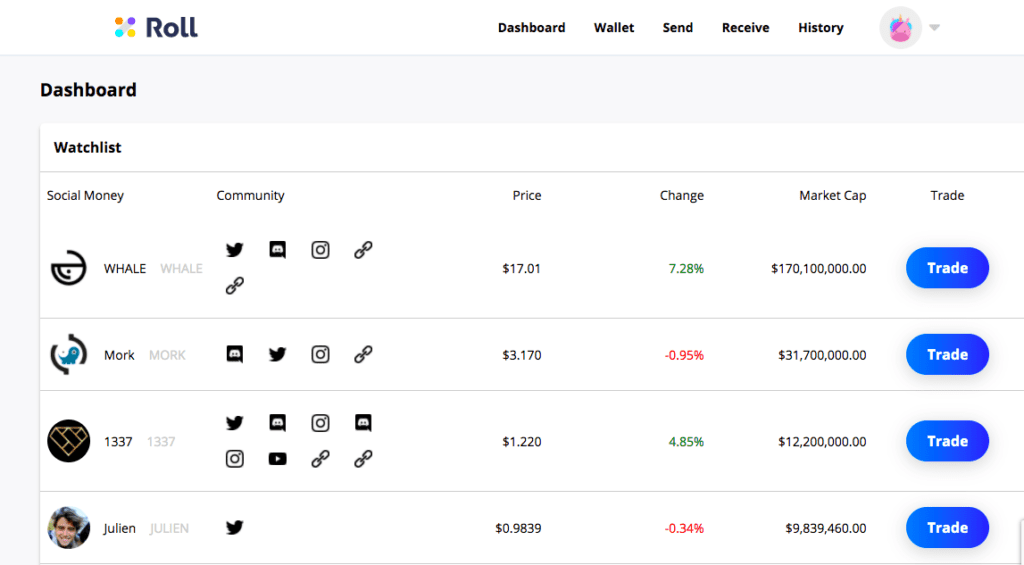
It was reported to have raised around $10 million in Series A funding that was led by IOSG Ventures with participants that included Huobi Ventures, Animoca Brands, and Alchemy. Other investors in Roll include Gary Vaynerchuk, CEO of Messari Ryan Selkis, and former CTO of Coinbase Balaji Srinivasan.
The most popular social money tokens by market cap are:
Rally (RLY)
Rally is a creator-centric platform that makes it possible for creators and their communities to establish their own digital economies independently. Users are able to launch their own tokens and facilitate transactions or provide access to participants within their ecosystems.
With Rally, creators are able to apply for their own branded digital asset without needing any technical expertise. In addition, they can reward fans with coin giveaways and incentivise them to take particular actions or give them access to private groups or exclusive content. Creators can even have NFTs for sale which could be purchased with the tokens.
Rally seamlessly integrates with most platforms and charges no fees. Rally encourages creators and their audiences to collaborate in ways not previously thought possible. The way creators earn can be customised through donations, merch or exclusive content offered to communities and all enabled by the platform’s features.
RLY is the native token of the Rally platform and it can be traded on exchanges such as Huobi, Gate.io, Coinbase, KuCoin and others.
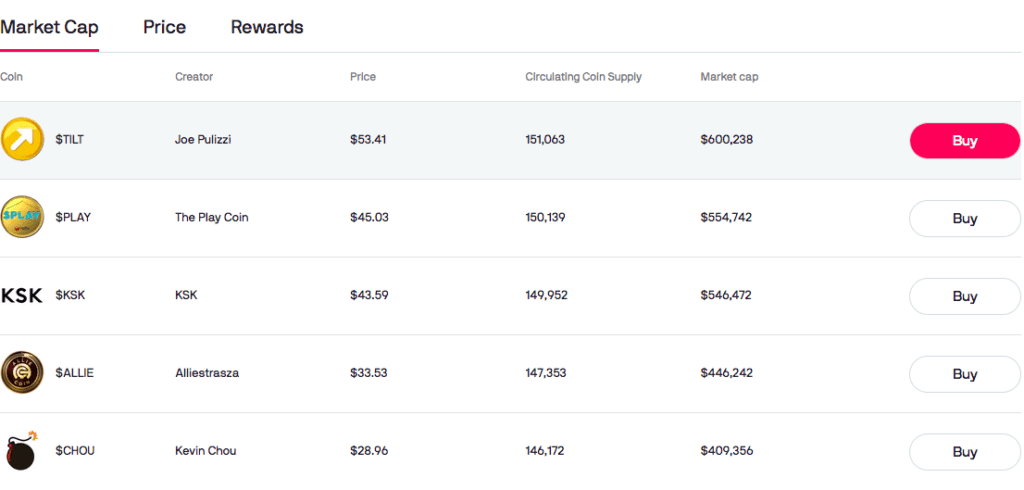
Whale (WHALE)
A social digital currency with limited issuance of 10 million tokens, WHALE is supposedly backed by tangible and rare NFTs owned by a Hong-Kong based Brit called WhaleShark. The pseudonymous NFT collector is reported to own over 200,000 NFTS. The digital repository he started called the $Whale Vault contains one of the largest assemblages of certified NFT video clips of NBA Top Shots moments licensed by the NBA. Read more on Bloomberg.
The token was said to be transitioning to a DAO structure. This would mean that the community will have full control of the revenue generation streams and WHALE assets. Community members and WHALE token holders can submit proposals for voting and approval to the Whale decentralised autonomous organisation.
According to Whale, their vault holds rare and valuable NFTs across digital art, virtual real estate, blockchain gaming, and other digital collectibles. Having spent several millions of dollars acquiring these digital assets, Whale now has the vault audited on a regular basis by NonFungible.com. WHALE tokens can be acquired by actively participating in the Whale community or working for the team and receiving a stipend in whale tokens. Tokens are also airdropped and users can also sell NFTs in exchange for WHALE. The tokens can be found on exchanges such as Huobi, Gate.io, and Poloniex.
Onooks (OOKS)
Described as an open finance protocol network, Onooks is essentially meant to be a decentralised, scalable, smart contract application that serves as a unified liquidity pool and core infrastructure for DeFi and open finance apps.
Onooks (OOKS) can be traded on Uniswap or via Stex Exchange. You can trade, lend, borrow, leverage OOKS on SushiSwap. As you look deeper at some of these coins and projects, it becomes apparent how nascent some of these ideas, technologies, companies and communities are. Onooks is one that seems that it could easily vanish into oblivion, however, the OOKS token currently has a market cap of around US$5m and trading volumes of around $100k daily at the time of writing according to CoinMarketCap and Coingecko. It’s hard to justify it as there’s not a lot of information on the project available publicly and when I tried to sign up on the platform, I didn’t receive the email activation link. Welcome to the strange world of social money tokens.
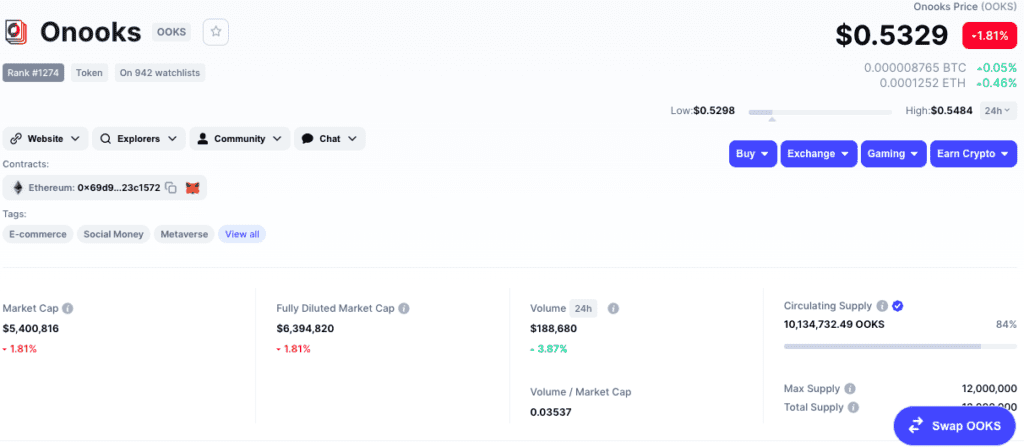
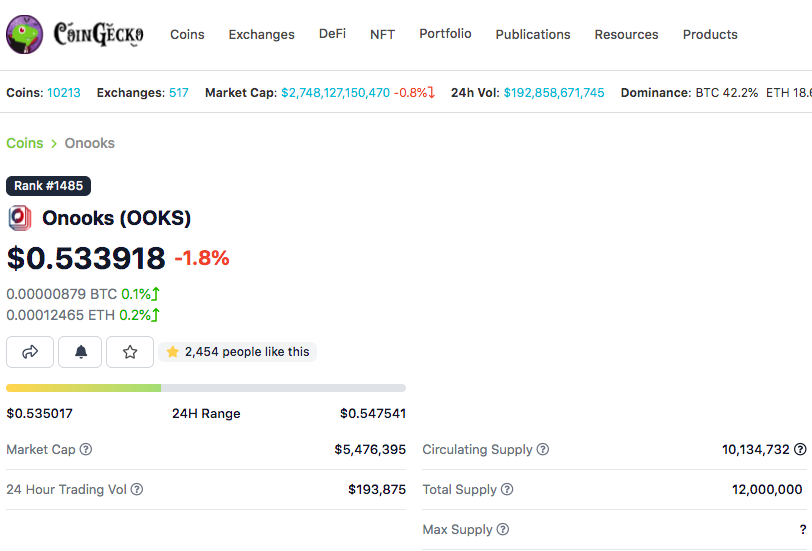
BitClout – Decentralized Social (DESO)
A new type of social network that supposedly mixes speculation and social media, BitClout has its own custom blockchain with architecture similar to Bitcoin. BitClout is a fully open-source project that can support sophisticated social network data such as posts, profiles, follows, speculation features, etc at significantly higher throughput and scale.
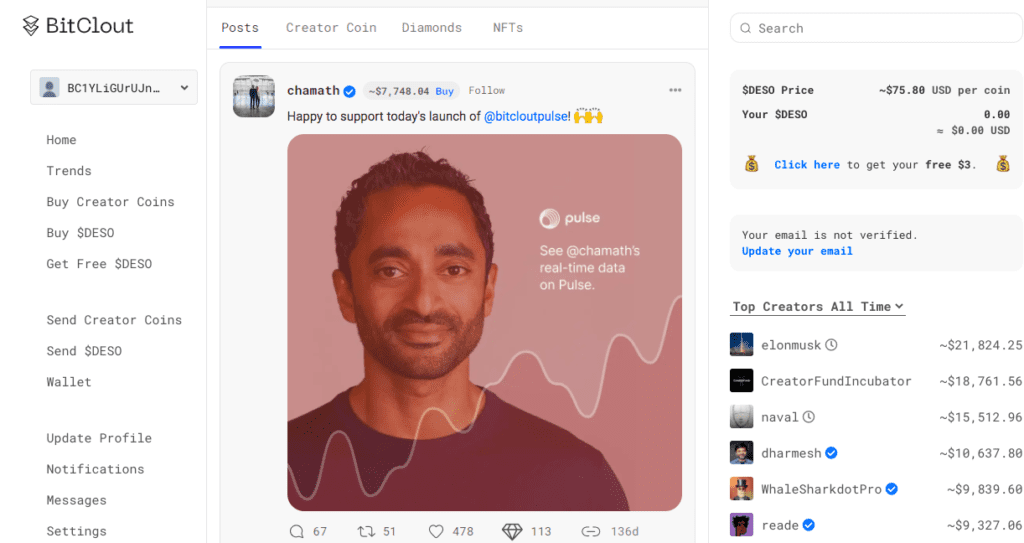
DESO is the native network coin which can be bought on Bitclout.com.
The platform enables you to complete your purchase through Wyre. Your USD will be converted to Bitcoin and then into $DESO automatically. Tokens can also be exchanged via Blockchain.com.
